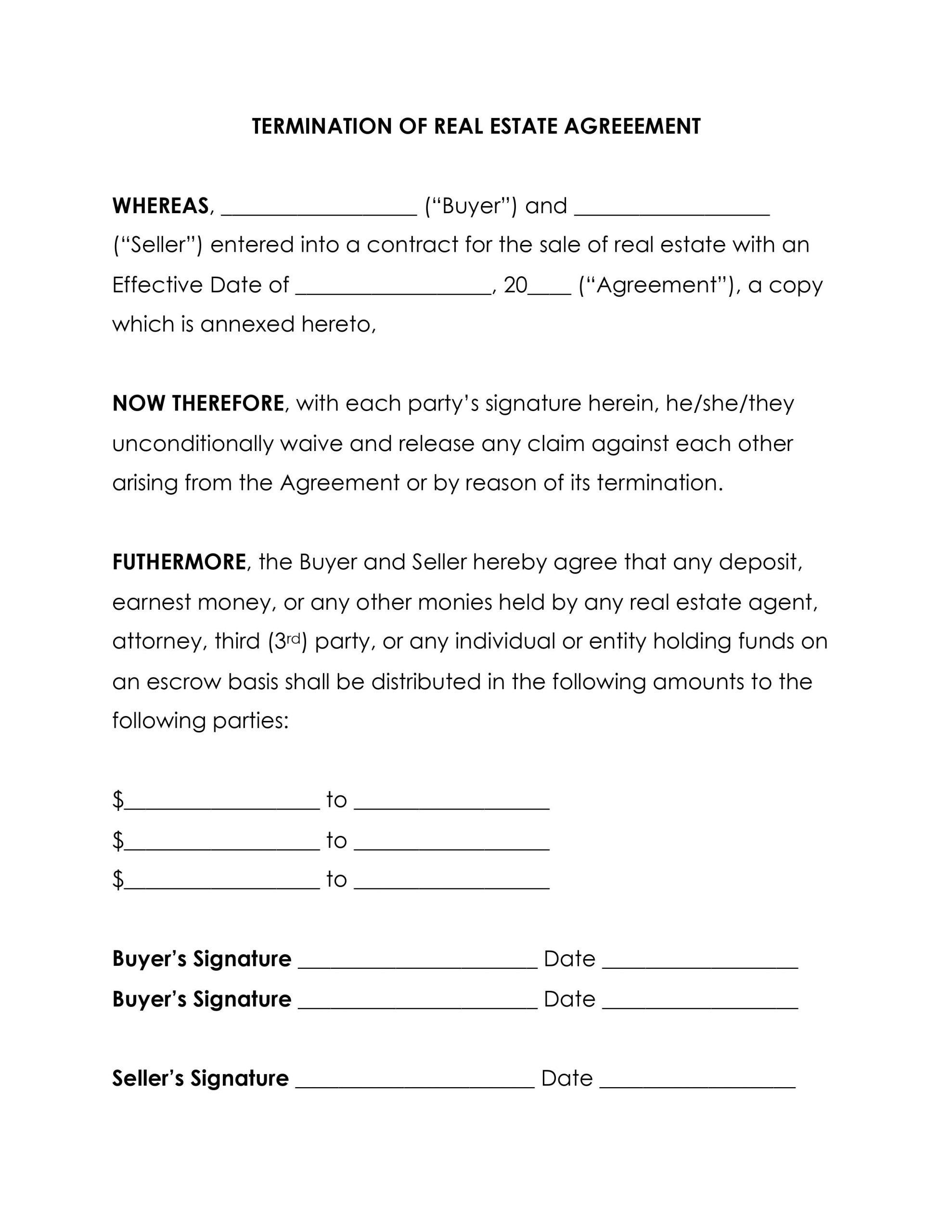Free Cancellation of Purchase Agreement Form
When Do You Need a Cancellation of the Purchase Agreement?
As a buyer, you might need to cancel your purchase agreement for the following reasons:
-
The seller and buyer have not been able to agree on the purchase price or other terms of the sale.
-
The buyer decides they no longer want to purchase the property.
-
The property is not what the buyer expected it to be.
-
There are significant problems with the property that were not disclosed by the seller and real estate agent.
-
The buyer is unable to obtain financing for the purchase.
As a seller, you might need to cancel your purchase agreement for the following reasons:
-
The buyer has not been able to agree on the purchase price or other terms of the sale.
-
The seller decides they no longer want to sell the property.
-
The buyer is unable to obtain financing for the purchase.
How to Fill Out a Cancellation of Purchase Contract Form?
Here are some of the questions which will help you fill out a purchase agreement termination letter fast and efficiently:
Step 1 – When Was the Contract Created and Who Are the Parties?
In the first section of the form, you will need to provide the following information:
-
The date of when the purchase and sale agreement was created.
-
The names and contact information for both the seller and buyer.
Step 2 – What is the Property Address and When Was it Purchased?
In this section, you will need to provide:
-
The address of the property being sold.
-
The date of when the real estate transaction took place.
Step 3 – Why is the Purchase Contract Being Cancelled?
In this section, you will need to check the box next to the reason why you are canceling the purchase and sale agreement. Some of the reasons you can choose from include:
-
The buyer is unable to obtain financing.
-
The property is not what was expected.
-
The seller is unable to make repairs.
-
Other (you will need to specify the reason in this section).
Step 4 – When is the Purchase Agreement Being Cancelled?
In this section, you will need to provide the date of when the purchase contract is being canceled. This date should be filled out using the mm/dd/yyyy format.
Step 5 – Signature of Parties
In this section, both the seller and buyer will need to sign and date the form. Once the form has been signed, it is a legally binding document.
If you have any questions about filling out purchase agreements, you should consult with an attorney.
What Does a Cancellation of Purchase Agreement Include?
Cancellation of purchase agreements should include:
-
The names and contact information of the seller and buyer
-
The address of the property that is being sold
-
The purchase price of the property
-
The date of the original purchase agreement
-
The reason for the cancellation of the purchase agreement
-
The signatures of both the buyer and the seller
How to Cancel a Purchase Agreement?
If a buyer needs to cancel their purchase agreement, they should first try to negotiate with the other party to come to an agreement. If they are unable to reach an agreement, they can use the cancellation of the purchase agreement form.
In the process of purchase agreements cancellation, the parties to a contract usually go through the following steps:
Step 1 – Parties reach mutual agreement on cancellation
In some cases, both the buyer and the seller may be able to come to a mutual agreement on canceling the purchase agreement. If this happens, both parties will need to sign and date the cancellation of the purchase agreement form.
Step 2 – The party canceling the agreement specifies the reason for the cancellation
For example, if one of the parties breaches the contract, the other party may cancel the agreement by specifying the reason for cancellation. In order to do this, the non-breaching party will need to provide written notice to the breaching party that they are canceling the agreement. This written notice must be given within the time frame specified in the original purchase and sale agreement.
Step 3 – One of the parties creates a cancellation form
This written notice must be given at least 10 days before the date of closing, or in a larger period if it is specified in the purchase and sale agreement. The notice must also be in the form of a cancellation of the purchase agreement form. You can find a template on this webpage.
Step 4 – The seller should return the earnest money deposit to the buyer
Once the purchase and sale agreement has been canceled, the seller should return any deposits that have been made by the buyer. The buyer is entitled to a full refund of their earnest money deposit if the reason for the cancellation was not specified in the contract. If the reason for the cancellation was specified in the contract, the buyer may only be entitled to a partial refund of their deposit.
Step 5 – The buyer may sue the seller for specific performance
If the real estate purchase agreement is canceled and the buyer has already paid part of the purchase price, the buyer may sue the seller for specific performance. This means that the buyer would ask the court to order the seller to go through with the sale. The buyer would only be able to do this if the reason for the cancellation was not specified in the contract.
The court may order the seller to go through with the sale if it finds that the seller acted in bad faith by canceling the agreement. The court may also award damages to the buyer if the buyer has suffered any losses as a result of the cancellation.
